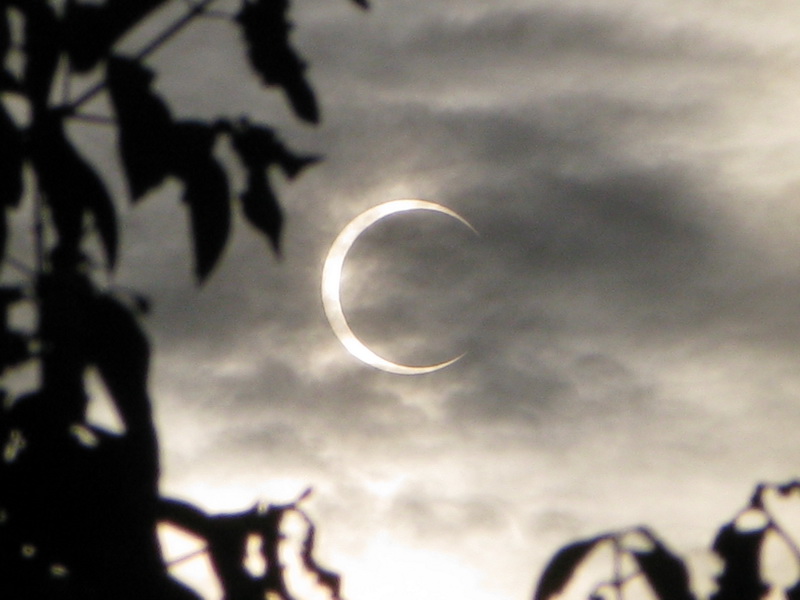American Eclipse
David Baron’s illuminating exploration of the nation’s race to catch a Wild West eclipse

Piñon pine trees, crackling campfires, craggy mountains, mining claims, and … astronomy? For one day in 1878, the allure of the American West had one more draw: 180 seconds of daytime darkness. David Baron’s American Eclipse tracks three umbraphiles—literally, shadow lovers—who traversed the sagebrush plains to intercept the path of the eclipse through the Rocky Mountains. One of them, Thomas Edison, was planning to use these fleeting cosmological moments to test out his tasimeter prototype. Read the excerpt below to learn about the otherworldly sight these shadow lovers (and a nation glued to newspaper reports) were soon to behold.
A total eclipse is a primal, transcendent experience. The shutting off of the sun does not bring utter darkness; it is more like falling through a trapdoor into a dimly lit, unrecognizable reality. The sky is not the sky of the earth—neither the star-filled dome of night nor the immersive blue of daylight, but an ashen ceiling of slate. A few bright stars and planets shine familiarly, like memories from a distant childhood, but the most prominent object is thoroughly foreign. You may know, intellectually, that it is both the sun and moon, yet it looks like neither. It is an ebony pupil surrounded by a pearly iris. It is the eye of the cosmos.
The sight, for many, is humbling and mystical. A Princeton student who witnessed totality in Iowa in 1869 compared the rush of emotion to an earlier near encounter with death, when “I was once held in a drowning condition at the bottom of a stream and the review of my life passed before me.” The hypnotic effect appears to extend beyond humans. On the eve of the eclipse of 1842, in Southern France, a local man—for an experiment—withheld food from his dog. “The next morning, at the instant when the total eclipse was going to take place, he threw a piece of bread to the poor animal, which had begun to devour it, when the sun’s last rays disappeared,” the astronomer François Arago recounted. “Instantly the dog let the bread fall; nor did he take it up again for two minutes, that is, until the total obscuration had ceased; and then he ate it with great avidity.”
Scientists, too, are apt to be spellbound. Firm hands tremble, eloquent tongues freeze, sharp minds grow addled. “In fact, the general scene of a total eclipse, is a potent Siren’s song, which no human mind can withstand,” warned Piazzi Smyth, the Scottish Astronomer Royal. “For its effects on the minds of men are so overpowering, that if they have never had the opportunity of seeing it before, they forget their appointed tasks of observation.”
Now, in Wyoming, the “darkness was like that of deep twilight, and the beauty of the corona was enchanting, but there was no time to pay attention to such things,” wrote William Harkness, head of the government party at Creston. “[E]verybody worked as if for their lives.”
Excerpted from American Eclipse: A Nation’s Epic Race to Catch the Shadow of the Moon and Win the Glory of the World by David Baron. Copyright © 2017 by David Baron. With permission of the publisher, Liveright Publishing Corporation. All rights reserved.


